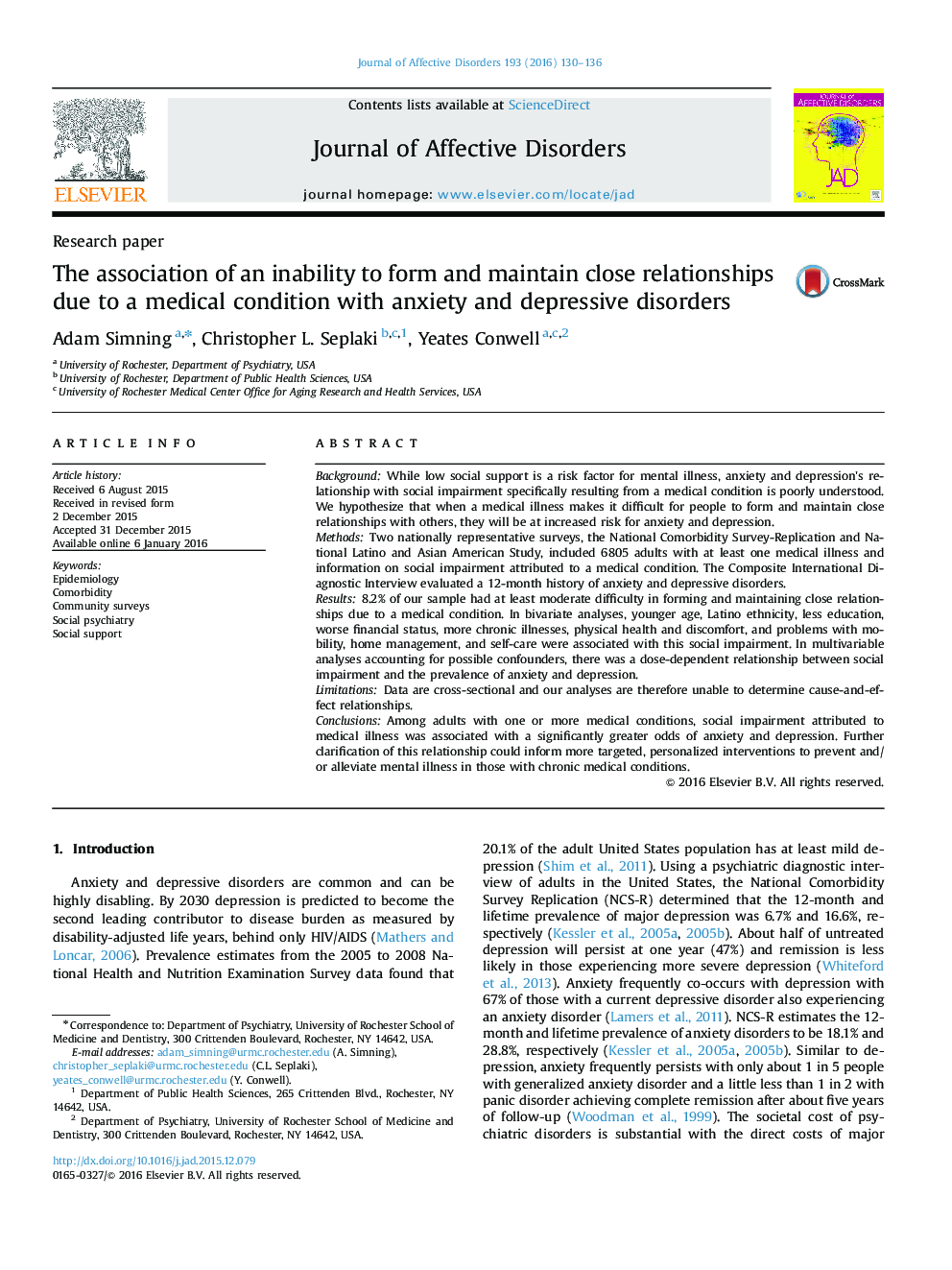| Article ID | Journal | Published Year | Pages | File Type |
|---|---|---|---|---|
| 6230444 | Journal of Affective Disorders | 2016 | 7 Pages |
â¢8.2% had at least moderate social impairment due to a medical condition.â¢1 in 4 adults with the worst level of social impairment had anxiety and depression.â¢Social impairment has a dose-dependent relationship with anxiety and depression.â¢Our findings are relevant to the millions of adults with chronic medical illnesses.
BackgroundWhile low social support is a risk factor for mental illness, anxiety and depression's relationship with social impairment specifically resulting from a medical condition is poorly understood. We hypothesize that when a medical illness makes it difficult for people to form and maintain close relationships with others, they will be at increased risk for anxiety and depression.MethodsTwo nationally representative surveys, the National Comorbidity Survey-Replication and National Latino and Asian American Study, included 6805 adults with at least one medical illness and information on social impairment attributed to a medical condition. The Composite International Diagnostic Interview evaluated a 12-month history of anxiety and depressive disorders.Results8.2% of our sample had at least moderate difficulty in forming and maintaining close relationships due to a medical condition. In bivariate analyses, younger age, Latino ethnicity, less education, worse financial status, more chronic illnesses, physical health and discomfort, and problems with mobility, home management, and self-care were associated with this social impairment. In multivariable analyses accounting for possible confounders, there was a dose-dependent relationship between social impairment and the prevalence of anxiety and depression.LimitationsData are cross-sectional and our analyses are therefore unable to determine cause-and-effect relationships.ConclusionsAmong adults with one or more medical conditions, social impairment attributed to medical illness was associated with a significantly greater odds of anxiety and depression. Further clarification of this relationship could inform more targeted, personalized interventions to prevent and/or alleviate mental illness in those with chronic medical conditions.
